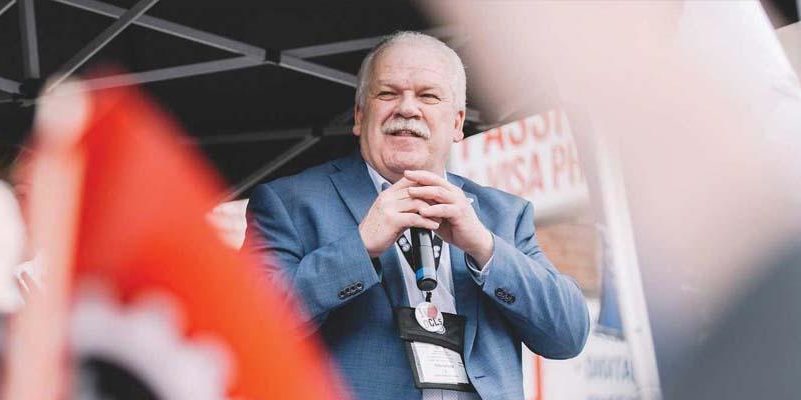Canada’s largest federal public union, Public Service Alliance of Canada (PSAC), filed for conciliation Wednesday, May 18 after declaring that talks with the government have reached an impasse.
Upon receiving the request for conciliation, the Chairperson of the Federal Public Labour Relation Board can recommend the creation of a Public Interest Commission that will hear both parties’ arguments in support of their positions.
PSAC National President, Chris Aylward, said this decision was made after an ‘insulting’ wage offer from the Treasury Board. According to a PSAC news release, the Treasury Board made an offer averaging a 1.75 per cent wage increase over four years.
PSAC and the Treasury Board have been in talks since June 2021. The 1.75 per cent wage offer is what pushed PSAC to declare an impasse but Aylward said he felt the government was not moving on any of PSAC’s key issues throughout negotiations.
About more than just money
Aylward pointed to rejected demands regarding anti-racism and anti-discrimination training.
“Our members face discrimination and harrasment in the workplace everyday, whether they are Black, Indigenous, racialized, LGBTQ2S+ or disabled,” Aylward said. “We want to make sure all our federal workplaces are inclusive. You would think, being the federal government, that would be a simple given but yet they are refusing those demands.”
In a statement emailed to rabble, the Treasury Board Secretariat said the Government of Canada is committed to negotiating in good faith and reaching a deal that is fair for employees.
“The Public Service Alliance of Canada’s comments regarding anti-racism training do not fairly represent the ongoing hard work with all bargaining agents through forums such as the National Joint Council (NJC), and with the Public Service Alliance of Canada specifically through the Joint Learning Program, to establish policies and to develop and implement training to promote a positive and safe work environment across all of our workplaces. The NJC helps create government-wide policies for workers represented by all 17 separate bargaining agents across the public service,” the Treasury Board said in regards to PSAC’s demands for anti-racism and anti-discrimination training.
Aylward said there is still a need for mandatory anti-discrimination training in the government. He pointed to the Minister of National Defence, Anita Anand’s, public apology to current and former Defence Team members who have been affected by sexual assault, sexual harassment and discrimination based on sex, gender, gender identity or sexual orientation.
“What we are asking for now is that the government be there for our members. We have seen absolutely no indication of their willingness to do that,” Aylward said. “The government is refusing to address any of our issues.”
Large gulf on wage issue
“The tipping point was the wage offer of 1.75 per cent. When we saw [the offer], we believed it was a clear indication that all they wanted to do was treat us with disrespect which we are not going to tolerate,” Aylward added.
Although the Treasury Board’s wage offer was the first one PSAC saw, Aylward said it was much too low of a starting point.
Canadian consumer prices in April 2022 were 6.8 per cent higher than April 2021, according to Statistics Canada.
The Treasury Board said in their email that PSAC is asking for an average annual increase of up to 14 per cent for each of its bargaining groups. The Treasury Board said this figure includes “pay and other provisions.”
PSAC’s wage ask, excluding the “other provisions” is lower than 14 per cent, according to Aylward.
“Our wage ask is 4.5 per cent. We believe that is extremely reasonable given the current cost of living and the rate of inflation,” Aylward said.
The union says it’s too early to tell if strike action will be necessary, but they will be preparing their members throughout the summer in case they can’t reach a deal and need to take strike votes.
“As the largest employer in the country, the government needs to take the lead. With the skyrocketing inflation and cost of living, they should be the ones setting the bar,” Aylward said. “If they believe we are going to accept a 1.75 per cent wage offer, they have another thing coming.”



